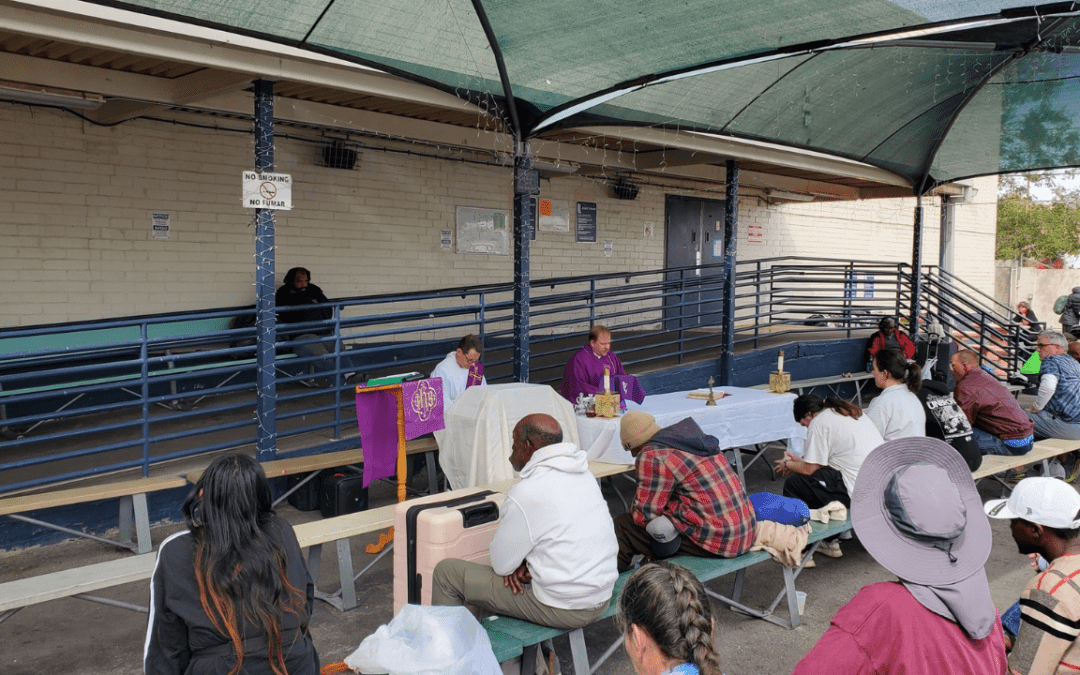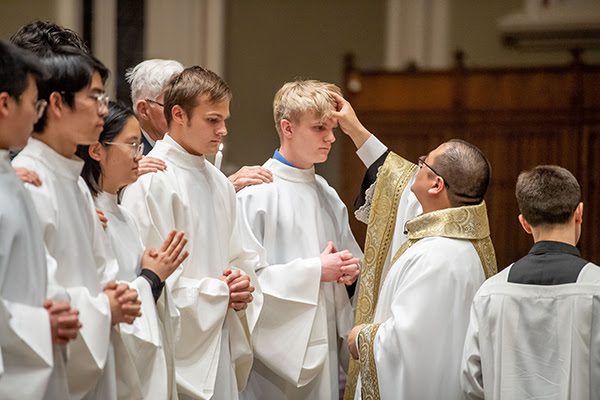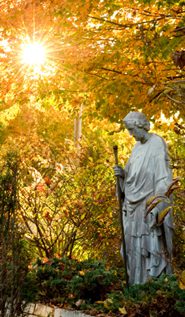
St. Joseph has always been a part of my life. I was born in St. Joseph Hospital to a mother named Josephine, and she was born on the feast of St. Joseph. I attended St. Joseph Grade School and St. Joseph High School. I even lived many years in St. Joseph County, Indiana. It seemed inevitable, then, that I became a brother of Holy Cross because the Brothers of Holy Cross were originally founded by Fr. Jacques Dujarié as the Brothers of St. Joseph. In 1837, Blessed Basil Moreau brought the Brothers of St. Joseph together with his Auxiliary priests to form the new Congregation of Holy Cross. St. Joseph remained the patron of the Brothers Society, and his feast became one of the patronal feasts for the entire Congregation.
There are three particular traits of St. Joseph that have served me well as I have moved from assignment to assignment, and that continue to serve me in a way that a patron and model should be understood. First, he was a teacher. Second, he was a humble person. And third, he was an enabler in the best sense of that word.
St. Joseph as teacher is perhaps the strongest reason I identify with him. He taught the child Jesus from His first days the very rudiments of ordinary life, and with Mary they were the first teachers Jesus experienced here on earth. Throughout His early life Jesus would have St. Joseph as His teacher.
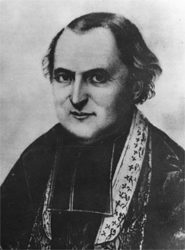
Brothers, like St. Joseph, have since the first days of the Congregation taught in many different places and at times under difficult circumstances. Fr. Dujarié’s vision for founding the Brothers of St. Joseph was to bring a group of men together to teach the rural French children who had little chance of education in post-revolutionary France. From these humble beginnings to the present day, Holy Cross brothers have continued their educational mission in grade schools, high schools, colleges and universities. Brothers also have taught in orphanages, delinquent homes for boys, and trade schools in all parts of the world, and they continue to do so today.
With St. Joseph as their model, Holy Cross brothers have taught in a variety of settings, but just as St. Joseph taught Jesus in Nazareth, they do so with the motive of bringing each student closer to God. No matter the level of education, or in what part of the world one finds himself, St. Joseph is still the model of the exemplary teacher and inspires many to serve in this sacred role.
Another trait of this holy man that comes to mind is his humility in willingly accepting his role as foster father of Our Lord. St. Joseph was a humble man. He was man who willingly remained in the background most of his life. He is seldom written of in Scripture after the birth of Jesus. Yet we know that, along with Mary, he exercised a major part in providing a stable home in which the Son of God could take on a human nature that flourished within a good and supportive family.
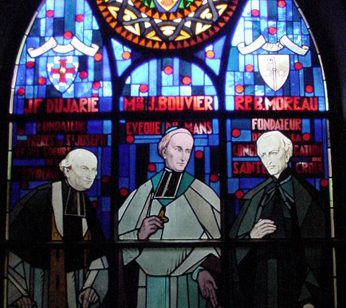
Humility is a virtue that is not popular today in our society and especially among professional people. Quite the contrary, good leaders are considered bold and aggressive individuals who are comfortable and capable of appearing first and foremost in any situation. Yet when we do witness a humble person we all recognize that this individual is special, and we would all like to be seen as humble. However, it is not easy to be humble in a society that recognizes the opposite as successful. The very vocation of the brother is one that is based on humility, and especially the type of humility St. Joseph modeled so well.
Lastly, brothers by the very nature of their vocation have been enablers in the best sense of that word. In particular, in Holy Cross, brothers have exercised a unique role in the ministries of the community. The two societies of priests and brothers have served in a wide variety of capacities that enabled the Congregation to do ministry in some areas of the world where it might have been impossible without the collaboration of these men. Holy Cross has been able to build parishes, schools, and even universities all over the world because of this unique vision of Blessed Basil Moreau.
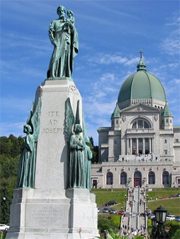
In doing this work, the Holy Cross brothers have had St. Joseph to serve as the ideal model that distinguishes the vocation of a religious brother. Today we hear the term “servant leadership” to define an alternative to the more common form of professional leadership that has dominated our society. Servant leadership has always been the model for Brothers of Holy Cross.
As we celebrate the Feast of St. Joseph, it is good that we all reflect on this humble, holy man. In particular during this Year of the Brother, we are called to recognize the unique role brothers exercise in the Congregation of Holy Cross. I am frequently reminded of the oft-used phrase Ite ad Joseph (“Go to Joseph”) that in pre-Vatican II days appeared on many of the altars to St. Joseph. As a Holy Cross brother, this phrase has served me well in good times and in less-good times. St. Joseph is indeed a worthy model and patron.
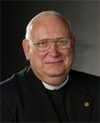
Bro. Donald Stabrowski, C.S.C., first professed vows on August 16, 1960 and contributed this reflection to help the Quo Vadis Blog mark the Feast of St. Joseph.

